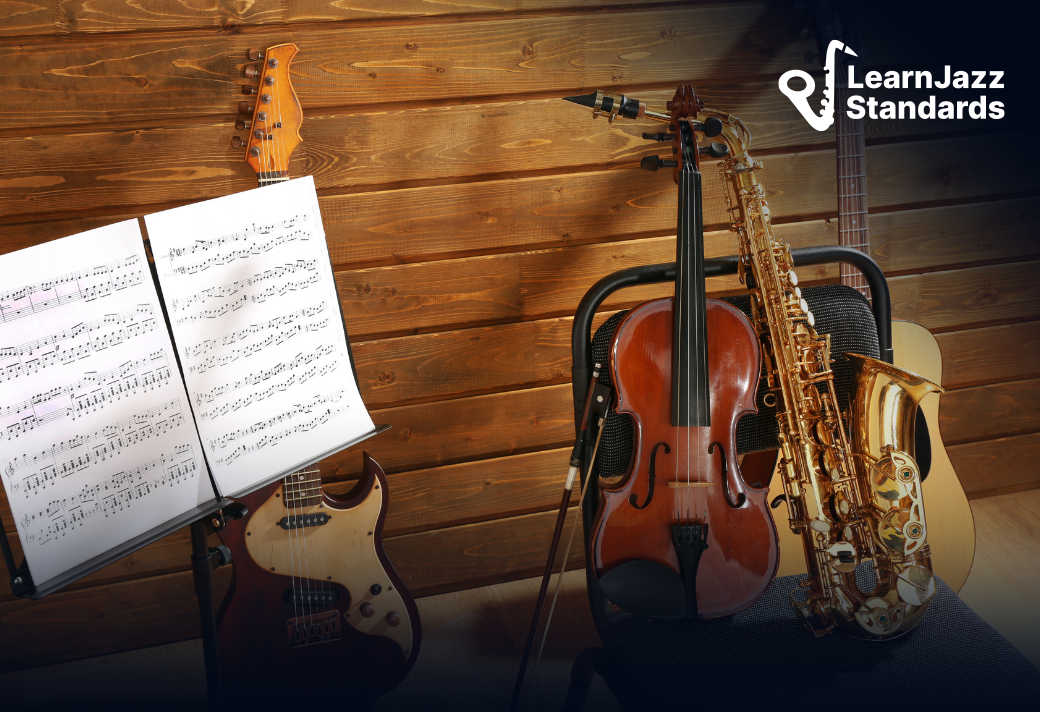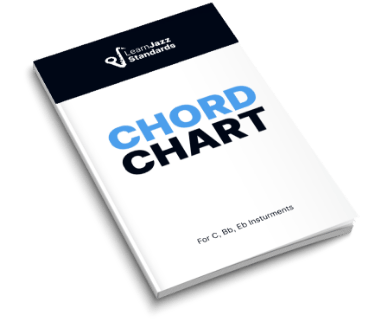I’ve spent a lot of time around jazz musicians, and if there is one thing I’ve learned it’s that nothing crushes their spirits more than playing a bad solo. As a jazz musician myself, I can say with confidence that I’ve left many a gig down and depressed because my solo’s just weren’t happening that night!
What happened to me!? The music was there just the other day. Where did it go?
It seems that there is a significant amount of value placed on improvising well in jazz music, and rightfully so! After all, improvisation is one of the key elements that makes up jazz music. This is not to say there aren’t many other elements that are incredibly important, but let’s be honest, everyone wants to be a great improviser! For me personally, the soloing aspect was one of the sides of jazz that really attracted me to the music, and I’m sure a lot of you would probably agree.
We spend a lot of time in the practice room trying to make our solo’s better. We work on scales, arpeggios and theory relentlessly. If we’re smart, we are also transcribing or learning solo’s from the greats. We are constantly trying to absorb new melodic material in hopes that it will come out in our playing when we get to the band stand. But are we missing out on something?
I recently had a lesson with a student who started asking me lots of questions about theory and super-imposing different scales and chords on top of other chords and concepts like this. They were all great questions and topics worthy of discussion, but when I heard her play I immediately knew there were some key elements missing. There were some basic elements missing from her improvising that I knew were making the difference between her sounding like an amateur and an experienced player.
I’ve had a lot of students come to me looking for new tricks and tools to make their solo’s better, but often times this is not truly what they need.
Check out these three tips that through my experience and instruction have proven to be some of the most valuable for playing great solos:
1. Play the melody.
Have you ever been soloing in the middle of a tune when suddenly you realize you aren’t improvising to the tune you are supposed to be playing? Often times this is because the song you are playing has similar chord changes to another song you just played, and so as you got lost in the moment you started hearing the wrong tune in your head. This has probably happened to everybody at some point.
The reason why this happened is because you weren’t thinking about the melody! The melody is unfortunately often overlooked, however the melody is the most important part of the song. The melody defines the song you are playing, so shouldn’t your solo’s be informed by the melody?
The problem is often we think too much about the chord changes and how to navigate them, but what would happen if we stepped back for a second and changed the focus to the melody?
Peter Bernstein was the one that really brought this concept to light for me. In one of my lessons with him he really stressed the importance of being able to hear the melody in my solos. Once he opened my eyes to this I constantly tried to keep the melody in my subconscious when I was playing.
Don’t be ashamed to play the melody in your solo even if you don’t elaborate on it much. Think about Thelonious Monk; he often just simply played the melody rather than lines. The melody is a solo in itself so just take it and make it your own!
Practice: Improvise over some jazz standards you know. Start by just playing the melody for the first chorus. The second chorus try to add a little bit more to the melody all while clearly stating it. The third chorus elaborate on it a little bit more and extend onto the melody, but always make sure to come back home to it. Continue playing choruses and just expand upon the melody as much as possible. This practice will really open up your ears and force you to be creative using just the melody instead of scales, arpeggios and licks.
2. Work on having good time.
Probably the most tell-tale sign of an amateur is shaky or bad time. This one is more overlooked than the melody!
When I was still fairly new to jazz, I used to record myself improvising at home or at gigs and would listen back to them. Sometimes I would surprise myself with a really cool line or melodic phrase but something would always seem off. It took me a while to figure out that it was because my time was shaky. My particular tendency was to rush. Sometimes I would speed up a line as I played it and arrive at my next destination too quickly. This would absolutely kill anything good I had just played!
Having a solid sense of time is key to playing great solos. If you don’t have it, something will always seem not right. This is why it’s incredibly important that you practice your time constantly. This will make all of the difference in your improvisation!
Practice: Set a metronome onto beats 2 and 4 and practice improvising through any song or even a chord progression. Practice playing just quarter notes, then eighth notes, and then triplet eighths. Using the same subdivisions, set your metronome to beats 1 and 3. When you feel comfortable, try setting your metronome to only beat 2, and then switch to different beats when you feel comfortable with that. There are lots of methods and ways to practice good rhythm and time, but this is just one practical way to start doing that.
3. Let your solos breathe.
Have you ever had a conversation with someone who just would talk and talk continuously and hardly leave any room for interjection? In fact it would be hard to even call this a conversation because there were no opportunities to respond. Wasn’t that experience annoying?
Don’t allow your solos to be annoying and practice having good phrasing. This is especially a problem for instruments like guitar, piano, drums and bass where, unlike a horn player, don’t need to actually breathe to continue playing.
Like any conversation, say a sentence and complete it before moving on to the next. Insert a comma, a colon, a semi-colon or even a question mark. Complete one solid idea before moving on. Don’t let them run on into each other to create one big annoying flood of information. Let your solo’s breathe!
Practicing good phrasing can be really hard. For me the most challenging aspect is not saying random sentences or switching topics too quickly. This is almost the opposite problem, and if this is you be sure to practice playing longer lines that make melodic sense with each other. It’s also important to consider how you build your solo.
Practice: Improvise over a standard at a medium to medium slow tempo and practice playing a continuous 4 bar phrase and then rest for a bar or two before starting the next 4 bar phrase. Try to continue off of each melodic idea you ended on. You can also try playing more bars of continuous notes if you have a tendency to end lines too quickly. Regardless, always leave space between the next phrase.











